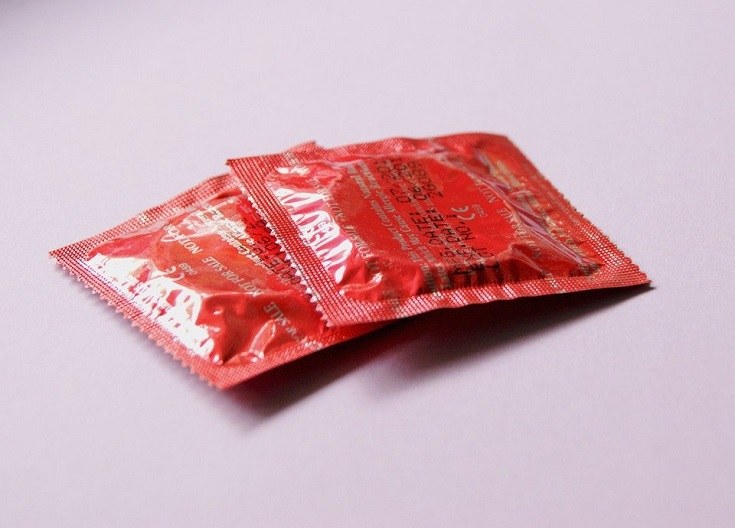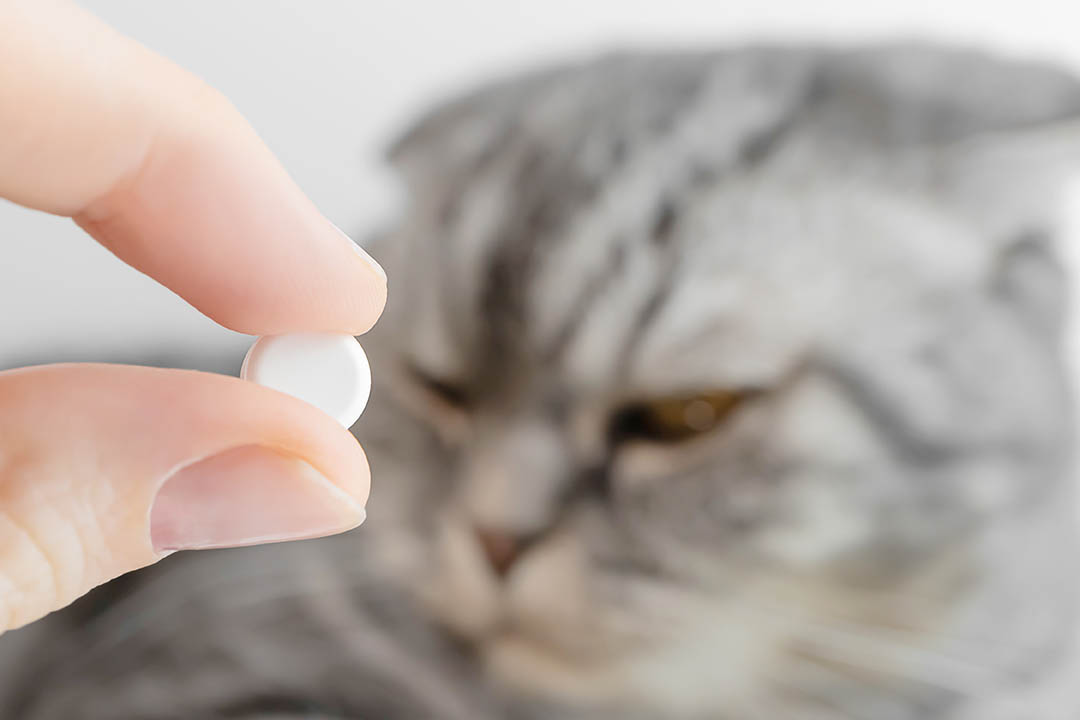My Cat Ate a Spider! Risks & When to Worry (Vet Answer)
Updated on
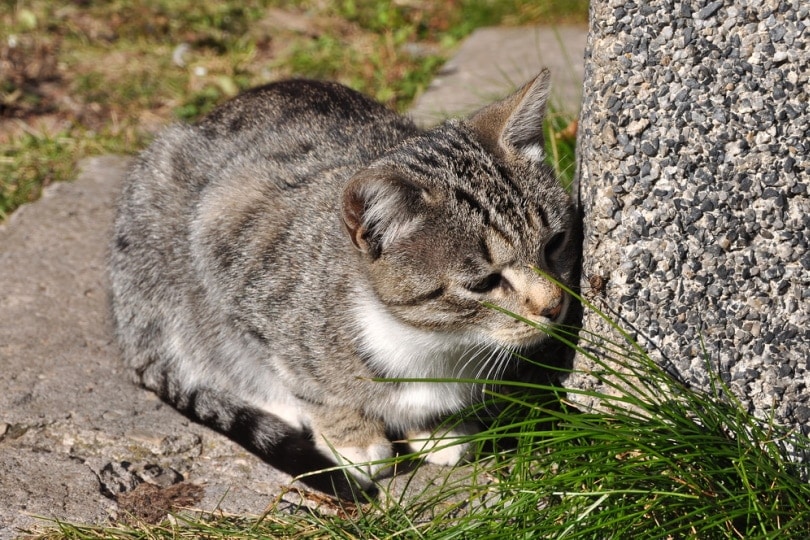
Cats are natural hunters and love to play with and tease their prey. Given how common insects and bugs are around our house, it is very common for cats to chase after them and interact with them—and then eat them! There is no need to panic though since, in most situations, there are very few risks to your cat if they eat a spider. In this article, we will discuss what happens if a cat hunts and eats a spider and what actions you might need to take if they begin to act distressed.
Spiders are regular visitors to our homes, no matter how we might feel about them. They are present across the planet in a huge variety of shapes and sizes. This means you should seek specific advice for your local area from local experts, but here, we will discuss general advice for dealing with spiders and their interactions with our pets.
What Happens if My Cat Eats a Spider?
In most cases, eating a spider will cause no harm at all to your cat. Most spiders are not dangerous, and even the venomous ones will have their venom digested before it can cause a problem. Cats can eat most spiders without harm, although the hairs of a tarantula may cause irritation to the mouth, causing drooling and inappetence.
The main concern when cats eat spiders is that they get bitten while attacking. Most spiders prefer to be left alone, and a cat that’s playing with or trying to eat a spider is at high risk of suffering a bite.
What Happens if My Cat Is Bitten by a Spider?
If your cat is playing with a spider and is bitten in the process, then some venomous bites can cause problems. Mild signs might include pain, swelling, and redness where the bite was, and these might last for 24-48 hours or so.
If your cat has had exposure to a more severe venom or is having an allergic reaction to the venom, you may see more severe signs like lethargy, vomiting, fever, and collapse. If you suspect that this is happening, you should seek professional veterinary advice from your local clinic as soon as possible.
Bites can get secondary bacterial infections because the venom often causes local skin cells to die, so this is also worth watching out for. The skin in the area undergoes a process of breakdown called necrosis. In these cases, the bite site might continue to get redder and larger over time and start producing pus. Again, this will need treatment, so contact your vet if you’re concerned.
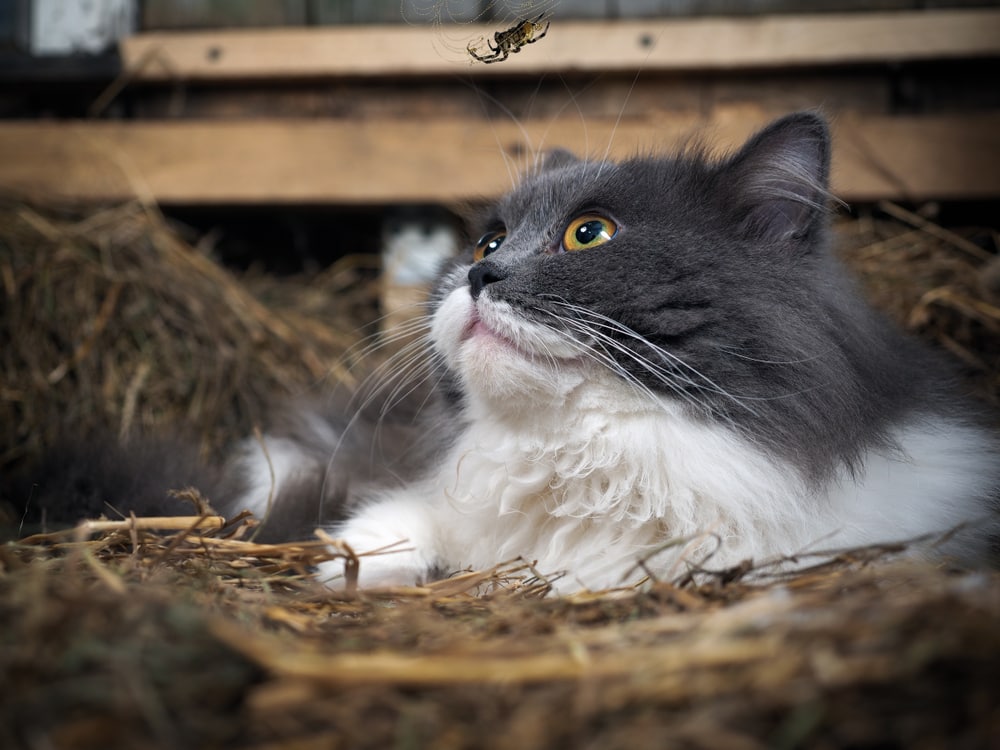
How Dangerous Are Spiders to Our Pets?
While there are hundreds of species of spiders that have many different characteristics, the good news is that the vast majority are harmless to humans and our pets. Most spiders also would prefer to hide rather than bite, so they will only attack if provoked. All spiders are predators and bite to catch their prey, and some are venomous, which means their bite can inject dangerous venom.
However, spiders are not poisonous, as this means they are dangerous if eaten. When cats eat spiders, their venom is usually digested when swallowed and doesn’t pose a threat in this way. Overall, most spiders in our homes are not dangerous to our cats.
Which Spiders Are Dangerous to Cats?
There are a few species that we should watch out for since their bites and venom can cause a problem. Venom is typically targeted at the nervous system, as it is used to paralyze the spider’s prey. It can also cause a powerful allergic reaction in some called anaphylaxis or anaphylactic shock.
Smaller spiders with a venomous bite include the Brown Recluse, Hobo Spider, False Widow, and Black Widow. Tarantula spiders are often larger, and their hairs can cause severe irritation. It is worth a little research into which of these species to expect in your local area. These spiders can be dangerous to you and your cat if they bite.
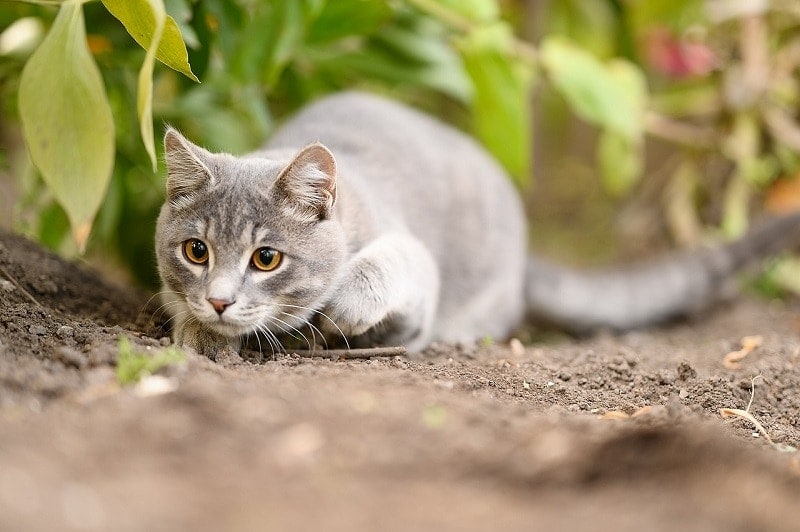
How Are Spider Bites on Cats Treated at the Veterinary Clinic?
Mild bites can be managed at home if your cat is still bright and acting normally, and it is best just to keep the affected area clean and dry. If you are in any doubt, contact your veterinary clinic for advice. If the bite has necrosis or becomes infected, it may need anti-inflammatory and antibiotic drugs to help them settle.
With more severe signs, the first step is getting the right diagnosis. Unless you have witnessed your cat being bitten by a spider, your veterinarian may advise an examination and blood tests to rule out other diseases that can cause similar signs. If the problem is deemed to be a spider bite, there is usually no antidote, but the effects can be managed.
Anaphylactic shock needs emergency attention to support the body and reduce inflammation, so cats usually require a drip and strong anti-inflammatories like steroid drugs. Pain relief is often essential, too. The sooner you seek professional attention, the better the outcome is likely to be for your cat.
Most cats will make a good recovery within 24-48 hours, as long as help is sought at an early stage. If allergic reactions and severe bite reactions are not treated, they can, unfortunately, prove fatal for your cat within hours.
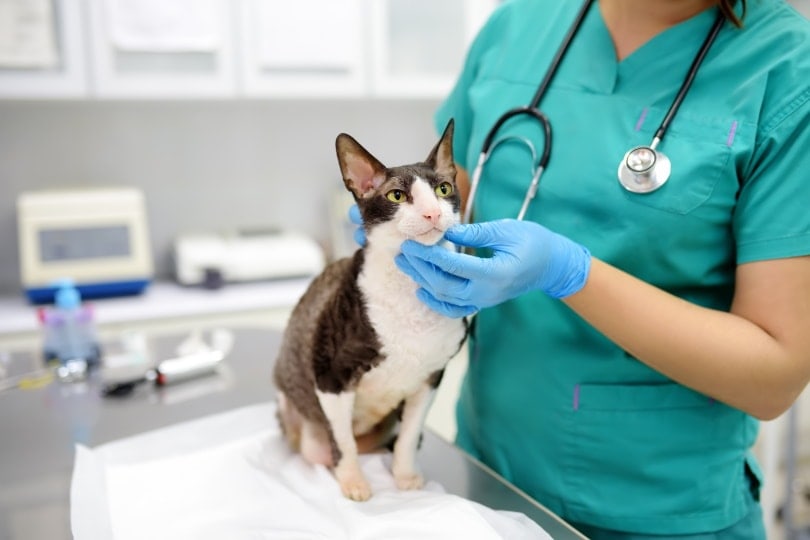
How Can I Prevent My Cat From Being Bitten by a Spider?
Cats have natural hunting instincts and need mental stimulation, so encouraging them to exercise regularly and play with interesting, entertaining toys can keep them distracted from things like insects. You can also hide food or put their food into special toys so that they have to seek it out.
Some people try and eradicate spiders by using pesticides, but often, these chemicals are more hazardous to pets, humans, and the environment than the spiders themselves, so this is not recommended unless professionally advised. Try to keep your yard clean and tidy to reduce the number of spiders that decide to live there. Old wood piles, for instance, are a natural hiding spot for spiders.
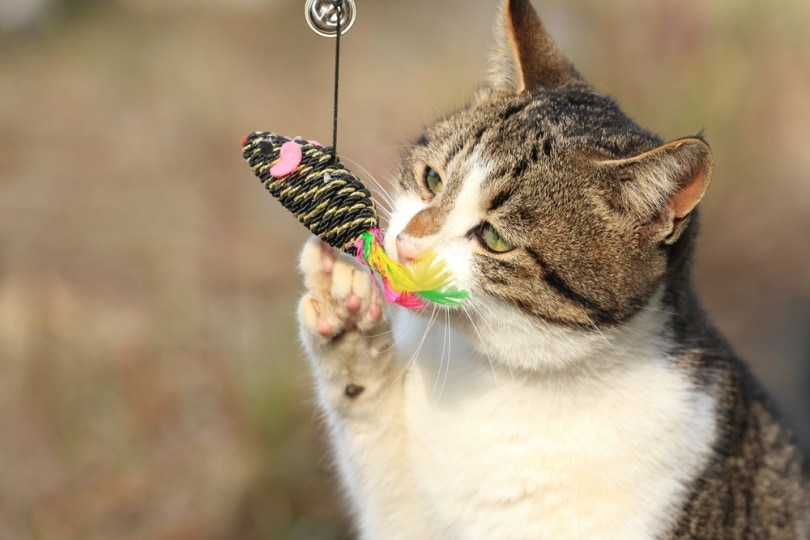
Conclusion
There are a huge number of different spiders, and the vast majority are harmless to humans and our cats. Although cats like to hunt spiders, most spiders are not dangerous if eaten. Even venomous spiders are not poisonous; they’re only dangerous if they bite, not if your cat eats them.
However, if your cat enjoys hunting spiders, be aware that venomous spiders may bite back if provoked. These bites can cause local reactions, skin damage, or more severe allergic anaphylactic reactions. If you are worried your cat has been bitten by a dangerous spider and is showing signs of being unwell, you should contact your local veterinarian at the earliest stage to give your cat the best chance of a full recovery.
Featured Image Credit: Zanna Pesnina, Shutterstock





